 But those colors I’ve seen and that road is somewhere, and I have the strangest desire to give an old friend a high five though I don’t understand why. from "Celebration" at The Collagist When you read Janelle DolRayne's work, you feel like a trusted friend. In an ongoing series, Janelle responds to Abstract Expressionist paintings by sculpting ekphrastic poems that linger in the mind like their arresting visual counterparts. Her poems are both dazzling and poignant as they embody the transformative experience of art to startle us into our imagination and lived experience. When I arrive at her last lines, I want to rush back to the start. She is a special writer, a dear grad school friend, and I'm excited to share her work with others. Janelle is a former poetry editor of Copper Nickel and the current production editor at The Journal. She is a recent MFA graduate from The Ohio State University. Her poems and nonfiction have appeared or are forthcoming in The Laurel Review, Indiana Review, Ninth Letter, The Collagist, Parcel, Interrupture, and the 2013 Best of the Net Anthology, among others. She is the recipient of an Academy of American Poets Prize and the Vandewater Poetry Award. She is originally from Coal Creek Canyon, CO. --- Shelley Wong, Poet of the Week
0 Comments
5/18/2015 0 Comments Cross Tie 5.18.15: Julia Connor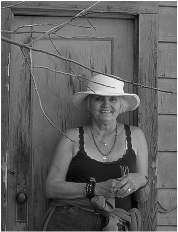 m(other) tongue Before . . . when moon and stone were the bulwark against which everything pushed and blood the first syllable in the body’s cup . . . . Julia Connor is a poet for the world and for the world of women. She nurtures her sister poets in the mystery. -- Barbara March
 But these are not angel wings who disguise themselves as leaf or shred of bark, who are named after the stops in meaning our language must make room for: from "Common Blue" at Poetry In her poetry, Melissa Kwasny is a diviner of nature. Whether it be bird, water, herb or tree, she translates its essence into human speech. And, like the birds, her tones are varied, clear and delightful. As she says in a prose poem from her most recent book, The Nine Senses, "I quicken the animal out with the in of where I've been." She's been, and is, with them with herself, to our benefit. Melissa is the author of four books of poetry which have won prestigious prizes: The Archival Birds (Bear Star Press), Thistle (Idaho Prize, Lost Horse Press), Reading Novalis in Montana and Nine Senses (Milkweed editions). She has also authored two books on poetics. -- Grace Marie Grafton, Poet of the Week 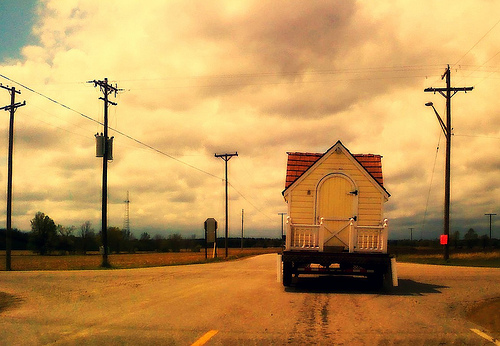 Who Will Water the Garden now that we’ve left the crumbling world behind, each unchosen side road mute, each crow flown away from the power lines? Home was a pause in the empty intersection under light-rumbled skies, a gold-toned mom and pop whistlestop, orange evening life, always on the move. We time traveled back to buttered toast and coffee, while behind the house, the horses stumbled. We will paint the walls of this cellar as if it were still the foundation. Those days we were always so caught being small between the poles; all I knew was underground: bodies piled on bodies. Power lines bend into catenaries reaching to catch and fling back time: When I was twelve my parents, remembering Ibsen, sold my dollhouse. The heavyset woman with the frail orange hair talked too loud. No need for church with spirit in cloud and electrified cross. Every mile we cross (windows clattering in echo of loose gravel on the road) the intersection of possibility and nevermore. Birthing the house halted at the crossroads where electric lines dissect the storm, fine-veined marble, green as our daughter's eyes. Who has set this humble door of gold to shimmer between road dust and storm cloud? It’s hard to open the door of a moving house, shuttered against the oncoming storm. The door is small and fleeting, but the heart behind it storms toward a new season, knits together stormclouds over this roving crossroads of home and sky, the sifted stones of a failed foundation. The road will shatter underneath these open windows, clouds to clouds, dust to dust. The road leads only to clouds. In this parallax, I assume departure. Come back white door. Come back yellow light. I never missed that yellow, and I was never sorry. My smallest dreams are golden. ------------------------------ Dear Readers, This ekphrastic exquisite corpse was created during National Poetry Month 2015 in response to the above artwork. The poem was cobbled together from lines posted by the following poets: Rebecca F. Ross, Annie Stenzel, Katy Brown, HB, Ivy, Connie Post, Kierstin Bridger, Charity Parrott, Jeanine Stevens, Tanya Greer, Cati Porter, Julia Park Tracey, Liz Tynes Netto, Emma Schmitz, Anna Marie, Ann Privateer, Meryl Natchez, Lynne Thompson, Janet Trenchard, Casey Gardner, Jeanette Nicole, Alice Anderson, Roz Levine, Deb Jensen, Suzanne O'Connell, Karen Terry, PD Weddington, Allie Batts, Raina Leon, L.A. Jones, Mary Pacifico Curtis, Carlena Wike, Wendy Esterás, Mary, Devon Moore, Pamela Murray Winters, Lindsay Lewis Smithson, Donna Vorreyer, Minal Hajratwala, EK Switaj, Yu-Han Chao, Shika Malavia, Ellen Kombiyil, Amanda Chiado, and Jessica Lindsley. The black lines link to the website of the poet who wrote the line, with the exception of, "knits together stormclouds over this roving crossroads of home and sky," which links to two different poets. We weren't able to include every line contributed, but we thank all of the poets for their participation! Happy reading, West Trestle Review 4/27/2015 0 Comments Cross Tie 4.27.15: Jane Downs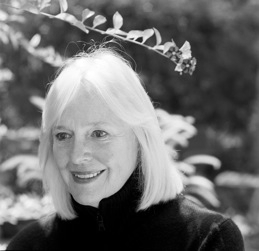 Jane Downs’ poems are strong stuff. They jolt the heart. They dip down into the mythic eternal present in unexpected places — in the midst of a family scene from childhood, at the lake edge, for example. Something terrible trembles at the edges of a sunny American landscape, as fathers drink gin and mothers show off tan legs in her prose poem sequence “Adirondack Dream.” Beauty and terror are never far apart in Downs’ incandescent, haunting world. Downs overcame my resistance to the prose poem; hers are so stunning. Now, I find myself writing them. That’s one of many Cross–Ties between us. I have also learned from her the skillful interweaving of texts. Eliot’s “The Wasteland” is a ghost that wanders in and out of her “April Elegy,”—a long and powerful poem about her father’s suicide, published as a chapbook by Kattywompus Press. Downs knows how to work her material and let it work her. She inspires me with her capacity to find words for unbearable truths, which, in the process of poem–making, take on breathtaking, improbable, beauty. In my capacity as Poetry Editor of Psychological Perspectives, a publication of the Los Angeles Jung Institute, I featured Downs and her work. (Some of the prose poems in “Adirondack Dream" were first published there.) I wrote this about her development as a poet: Downs has been a poet since her childhood. Her father loved poetry and word play. Downs learned early that literature was the way into his heart. She memorized lines from T.S. Eliot’s “Love Song of J. Alfred Prufrock” before she learned how to read. Her mother was a classical pianist. Downs says: “The combination of her playing and Father’s love of language taught me to hear the beauty of a single word as if it were a musical note.” Downs studied at Syracuse University and at Mills College. Her work has won prizes and appeared in numerous publications including Ashville Poetry Review, FIELD, Folio, Spillway, Green Hills Literary Lantern, The North American Review, Ninth Letter, and Poetry Flash. She has published three chapbooks. Her novella, The Sleeping Wall won Fiction Fix Award and was published in 2013. She is a partner in Red Berry Editions, which produces beautiful handmade books. --Naomi Ruth Lowinsky, Poet of the Week. 4/20/2015 0 Comments Cross Ties 4.20.15: Jenny Factor the old life returns on six legs, or spins a musty web as it roosts over a poison pot from "Settling In" at Poets.org There is so much wonderful writing coming from women in California and Nevada, I want to cross and cross here, but today I would like to point readers to Jenny Factor. Jenny was praised in her first award-winning collection, Unraveling at the Name, for, “making form sing with idiosyncrasy,” and I like that phrasing. Her use of form is striking and original, and integrated with content in a seamless, organic, surprising way. She has a particular way of writing about motherhood, feminism, intimacy, solitude that reveals a life of deep consideration, the nuanced revelation of the everyday, and a clarity of emotion that is rare. -- Jennifer K. Sweeney
Join the West Trestle Review community to create one grand ekphrastic poem!
How it works: Come up with one line of poetry about the artwork above, and enter it in the comment section below. You have until April 29th. On April 30th, the exquisite corpse will appear cobbled together out of the darlings posted here, so be sure to check back! Each line will link back to your very own personal web page, if you have one. Who can play: The challenge is open to all those who identify as women regardless of geographical location. Ready, set: Poem!
3/30/2015 1 Comment Cross Tie 3.30.15: Heather Altfeld
3/18/2015 0 Comments Cross Tie 3.18.15: Mia Sara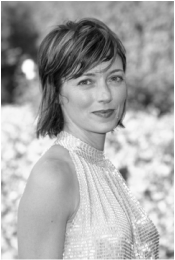 Mia Sara has a regular thing on PANK called, "Wrought and Found" and a website of previously published poems at Tumblr. If you were born during the Carter Administration you probably know Mia Sara as the radiant, young actress who played Ferris Bueller’s girlfriend. Well, she grew up to be a terrific poet. Fierce, intelligent and deeply human, her poetry is the real deal. -- Poet of the week, Liz Tynes Netto 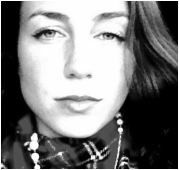 Heather Stewart is a graduate of the University of California at Berkeley and holds a Master of Arts in English Literature from the University of Alaska. Her writing has appeared in magazines and academic journals, including but not limited to: Permafrost, Educe, Playboy Magazine, Psychological Poems, and The Smoking Poet. She calls herself a “keen self-satirist and master of humility.” She is a professor of English Literature in the state of Texas. You can follow her poetry and other writings on Wordpress. -- Kaitlin Deasy, Poet of the Week. 2/23/2015 0 Comments Cross Tie 2.23.15: Paula Koneazny
1/26/2015 0 Comments Cross-Tie 1.26.15: Chana Bloch
1/4/2015 0 Comments Cross-Tie 1.5.15: Susan Cohen
11/24/2014 1 Comment Cross-Tie 11.24.14: Dawn McGuire11/4/2014 1 Comment Cross-Tie 11.4.14: Dorothy Barresi
10/27/2014 0 Comments Cross-Tie 10.27.14: M. NourbeSe Philip
10/19/2014 0 Comments Cross-Tie 10.19.14: Moira Magneson
|
Powered by Women
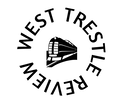
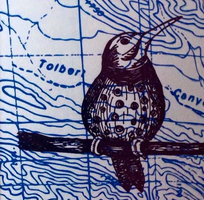
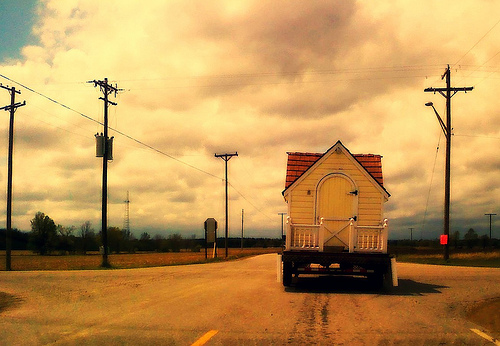
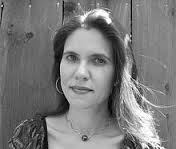
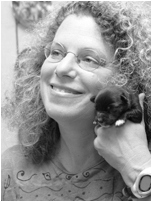



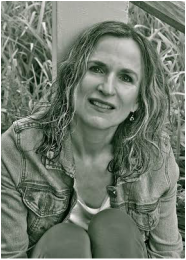
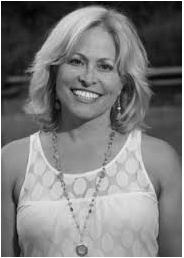
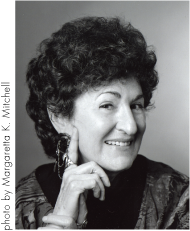
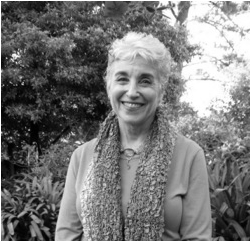





 RSS Feed
RSS Feed